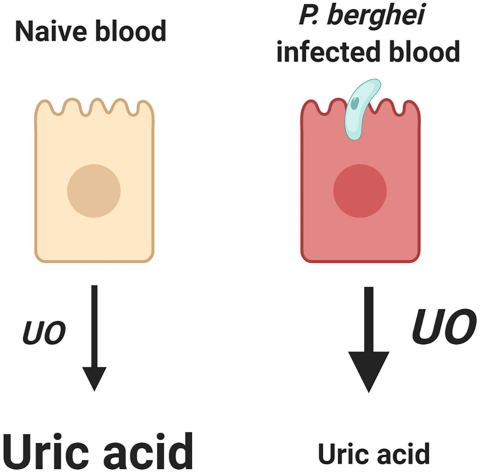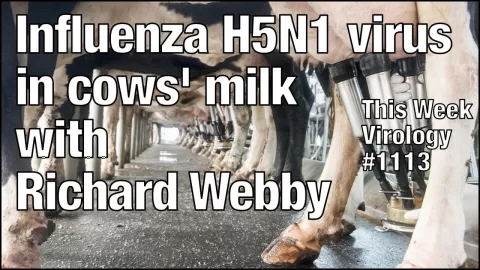The connection between the shingles vaccine and dementia is gaining attention, particularly highlighted by a recent study published in *Nature*. This research indicates that individuals who received the shingles vaccine had a 20% lower chance of developing dementia over seven years compared to those who did not receive the vaccination. The study, led by scientists from Stanford Medicine and Austria’s Vienna University of Economics and Business, examined the health records of older adults and found significant implications for preventing dementia shingles. The varicella zoster virus, responsible for shingles, may pose more risks than previously thought, particularly for cognitive health in aging populations. With increasing evidence from shingles vaccine dementia studies, understanding the vaccination’s impact on dementia could redefine preventative health strategies for older adults.
Exploring the relationship between the herpes zoster vaccine and cognitive decline offers a new perspective on health management for seniors. This vaccine, aimed at preventing shingles, has potential links with the onset of dementia, sparking interest in further investigation. Recent findings suggest that the immunological benefits derived from the vaccine might extend beyond its primary purpose, potentially impacting various health outcomes, including neurodegenerative diseases. As this discourse evolves, alternative phrases such as “shingles immunization effect on dementia” and “herpes zoster vaccine cognitive benefits” are surfacing in the literature. Understanding the broader implications of vaccination on age-related cognitive health may pave the way for innovative preventive measures against dementia among the elderly.
The Connection Between Shingles Vaccine and Dementia Prevention
Recent research indicates a significant connection between receiving the shingles vaccine and a lower risk of developing dementia. A study conducted by Stanford Medicine experts analyzed the health records of adults aged 71 to 88 in Wales, finding that those vaccinated against shingles were 20% less likely to be diagnosed with dementia within seven years. This adds to the accumulating evidence in the scientific community that suggests vaccination against the varicella zoster virus—responsible for shingles—may play a role in enhancing cognitive health as we age.
In examining the health outcomes related to the shingles vaccine, researchers highlighted the importance of differentiating between vaccinated and unvaccinated individuals. The study noted that while vaccinated individuals typically exhibit healthier lifestyles, which could influence health outcomes, the data still strongly supports vaccination as a preventive measure against dementia. This aligns with previous investigations into the positive health impacts of vaccination, positioning the shingles vaccine not only as a means to prevent painful rashes but also as a potential guardian against cognitive decline.
Understanding Shingles and Its Implications for Older Adults
Shingles, or herpes zoster, results from the reactivation of the varicella zoster virus, which remains dormant in the body after a person has recovered from chickenpox. As individuals age, the likelihood of this virus reactivating increases, leading to painful rashes and other debilitating symptoms. For older adults, this condition not only affects physical health but can also have lasting implications for mental well-being. Understanding the impact of the shingles vaccine becomes particularly crucial, as it could mitigate both immediate discomfort and long-term health issues such as dementia.
Implementing strategies for preventing shingles through vaccination can lead to improved health outcomes among the elderly population. By reducing the incidence of shingles, the shingles vaccine may also reduce stress on both the healthcare system and patients, making it a vital component of preventive health for adults aged 50 and above. The study’s findings contribute to a growing body of literature that seeks to uncover the broader benefits of vaccination—pointing to the vaccine’s role in safeguarding not just physical health, but cognitive function as well.
Health Outcomes: Evaluating the Shingles Vaccine Impact
Evaluating health outcomes related to vaccination efforts is essential in understanding the overall impact on community health. The shingles vaccine, which protects against shingles, also appears to reduce the risk of developing dementia. A review of the data from the recent study has shown a notable 20% decrease in dementia diagnoses among those who received the vaccine compared to those who did not.—a compelling statistic when discussing the broad benefits of immunization. This aligns with ongoing research about vaccination impacts on health beyond its primary purpose of disease prevention.
The significant finding of this study reinforces the idea that vaccination against diseases caused by the varicella zoster virus may lead to significant long-term health benefits, including preventing cognitive decline and dementia. Additionally, as evidence accumulates, public health organizations may prioritize awareness campaigns to inform older adults about the potential benefits of shingles vaccination, not only in preventing pain but also in preserving cognitive health and preventing dementia.
Shingles Vaccine: A Potential Key to Cognitive Health
The role of the shingles vaccine in promoting cognitive health has been a topic of increasing interest among researchers, particularly in the context of aging populations. The recent findings suggest a direct correlation between receiving the shingles vaccine and enhanced cognitive function, which could offer immense benefits to aging adults. As dementia rates rise globally, identifying preventive measures becomes essential, and targeting health interventions such as shingles vaccination could be key in tackling this growing health challenge.
Furthermore, the research suggests that the vaccine might also confer indirect benefits through the modulation of immune responses, particularly in women who exhibited more pronounced protective effects. This highlights the importance of strategizing vaccination programs tailored to enhance cognitive health outcomes for vulnerable populations. The implications of these findings may extend beyond immediate health concerns, encompassing long-term cognitive wellness strategies that can significantly improve quality of life for older adults.
Implications of Vaccination Programs on Public Health
The implications of vaccination programs like the shingles vaccine extend well beyond individual health, significantly impacting public health strategies. By reducing the incidence of shingles and related complications such as dementia, comprehensive vaccination campaigns can have far-reaching effects, improving community health outcomes and reducing healthcare costs associated with managing chronic conditions. This positions shingles vaccination as a critical component in public health planning for aging populations.
Moreover, understanding the long-term benefits of vaccination against the varicella zoster virus may encourage broader participation in vaccination programs. As studies like the one from Stanford continue to shed light on health outcomes related to vaccination, public health officials may promote educational initiatives that underscore the dual benefits of such vaccinations—preventing not just acute infections, but also the risks of cognitive decline and dementia. Such proactive health measures could lead to an overall healthier society as populations age.
A Closer Look at Existing Studies on Shingles and Dementia
Existing studies examining the relationship between the shingles vaccine and dementia risk reveal a complex interplay of immunological and health behavior factors. For instance, while some studies have highlighted a correlation between vaccinated individuals and reduced dementia risks, they often note the need for more rigorous controlled research to substantiate these claims. The latest insights from the recent Welsh study exemplify this ongoing research, promising a deeper understanding of how the varicella zoster virus’s activities can impact cognitive health.
As researchers continue to explore the links between vaccination and dementia risk, a clearer picture of how the shingles vaccine modifies health outcomes for vulnerable populations is developing. The conversation around preventing dementia through vaccination is gaining traction, supported by emerging evidence that emphasizes the potential for vaccines to serve as an effective strategy in public health initiatives designed to combat age-related cognitive decline.
The Importance of Health Behaviors in Vaccine Efficacy
In exploring the efficacy of the shingles vaccine and its relationship with health outcomes, the importance of health behaviors cannot be overlooked. Previous associations made about vaccinated individuals generally exhibiting healthier lifestyles must be considered in the context of their potential influence on study outcomes. The Stanford study’s authors emphasized this point, suggesting that while vaccination correlates with improved health outcomes, lifestyle choices may significantly shape these results.
This observation points towards a critical area for future investigation: understanding how health behaviors interact with vaccination effectiveness. If health-conscious individuals are more likely to seek out vaccinations, then disentangling these factors will be necessary to provide clear recommendations regarding immunization and its protective effects against dementia and shingles. Implementing education and interventions that promote healthy behaviors alongside vaccination programs may enhance overall public health outcomes.
Understanding Varicella Zoster Virus and Its Impact
The varicella zoster virus (VZV) is the underlying cause of both chickenpox and shingles. Following an individual’s recovery from chickenpox, VZV remains dormant in the nervous system and can reactivate later in life, particularly among older adults. This reactivation manifests as shingles—a painful condition that can lead to serious complications, including cognitive decline and dementia. Understanding this virus is fundamental in addressing public health strategies related to vaccination and long-term health outcomes.
Addressing the public health implications of VZV reactivation highlights the necessity of effective vaccination strategies in minimizing its adverse effects. The shingles vaccine serves as a preventative measure, not just for shingles but potentially for dementia linked to viral reactivation. Public health campaigns focused on educating older adults about the importance of shingles vaccination will be essential to combat the widespread implications that VZV can have on cognitive health across populations.
Future Directions in Dementia and Vaccine Research
The findings of the recent study suggest several future research directions on the association between shingles vaccination and dementia. Investigating the underlying mechanisms by which the shingles vaccine may influence cognitive health could pave the way for breakthroughs in preventing age-related cognitive decline. Future studies should focus on long-term effects and explore variations across different demographics to assess the generalizability of the findings.
As the research community delves deeper into the connections between vaccination and mental health, collaboration among healthcare providers, researchers, and public health officials will be paramount. Together, they can develop comprehensive strategies to optimize vaccination outreach and maximize community health benefits, ultimately addressing gaps in care for vulnerable older populations. The previously untapped potential of vaccines in safeguarding mental health continues to hold promise for reducing the burden of dementia in future generations.
Frequently Asked Questions
What does the recent shingles vaccine dementia study reveal about the effect of the shingles vaccine on dementia risk?
The recent shingles vaccine dementia study published in *Nature* indicates that individuals who received the shingles vaccine were 20% less likely to develop dementia over a seven-year period compared to those who did not receive the vaccine. This research analyzed health records of Welsh adults aged 71 to 88 and suggests a potential link between vaccination and improved health outcomes related to dementia.
How does preventing dementia shingles relate to the effectiveness of the shingles vaccine?
Preventing dementia shingles is linked to the effectiveness of the shingles vaccine, as evidence suggests that vaccination may decrease the risk of dementia. The study highlighted that individuals vaccinated against shingles had a significantly lower incidence of dementia diagnoses, which underscores the importance of the shingles vaccine in potentially protecting against dementia.
What is the vaccination impact on dementia according to recent studies on shingles vaccine?
Recent studies indicate a positive vaccination impact on dementia, particularly pointing to the shingles vaccine. The latest findings reveal that recipients of the shingles vaccine have a lower likelihood of developing dementia, suggesting that vaccination could play a vital role in dementia prevention among older adults.
What role does the varicella zoster virus play in dementia and shingles vaccination?
The varicella zoster virus (VZV), which causes shingles, may also influence dementia outcomes. The shingles vaccine reduces the risk of VZV reactivation, potentially leading to lower rates of dementia. The study proposes that changes in healthcare pathways due to shingles, along with immunomodulatory effects of the vaccine, may contribute to better health outcomes in dementia risk.
What health outcomes related to shingles vaccine should older adults consider?
Older adults should consider various health outcomes related to the shingles vaccine, including its potential to lower the incidence of dementia. Recent research shows that vaccination can lead to a significant reduction in new dementia diagnoses, highlighting the importance of receiving the shingles vaccine for not just shingles prevention, but also for cognitive health.
| Key Point | Details |
|---|---|
| Study Overview | Research published in *Nature* by Stanford Medicine and the Vienna University of Economics linked shingles vaccination to reduced dementia risk. |
| Study Population | Welsh adults aged 71 to 88 were studied, focusing on vaccination effects over seven years. |
| Dementia Risk Reduction | Vaccinated individuals were 20% less likely to develop dementia compared to non-vaccinated individuals. |
| Shingles and Health Behavior | Health behaviors differed significantly between vaccinated and unvaccinated individuals, affecting study outcomes. |
| Unique Study Design | The study took advantage of a unique vaccination rollout in Wales, acting like a randomized trial. |
| Findings on Women vs. Men | The most significant protective effects were observed in women following vaccination. |
| Potential Mechanisms | Three proposed mechanisms: changes in healthcare pathways, reduced VZV reactivation, immunomodulatory effects. |
Summary
The shingles vaccine dementia link is gaining attention as recent research indicates that vaccination may significantly decrease the likelihood of developing dementia in older adults. This study highlights an important correlation, suggesting that receiving the shingles vaccine not only prevents the painful rash but also potentially offers protective benefits against a serious cognitive decline.
The content provided on this blog (e.g., symptom descriptions, health tips, or general advice) is for informational purposes only and is not a substitute for professional medical advice, diagnosis, or treatment. Always seek the guidance of your physician or other qualified healthcare provider with any questions you may have regarding a medical condition. Never disregard professional medical advice or delay seeking it because of something you have read on this website. If you believe you may have a medical emergency, call your doctor or emergency services immediately. Reliance on any information provided by this blog is solely at your own risk.








